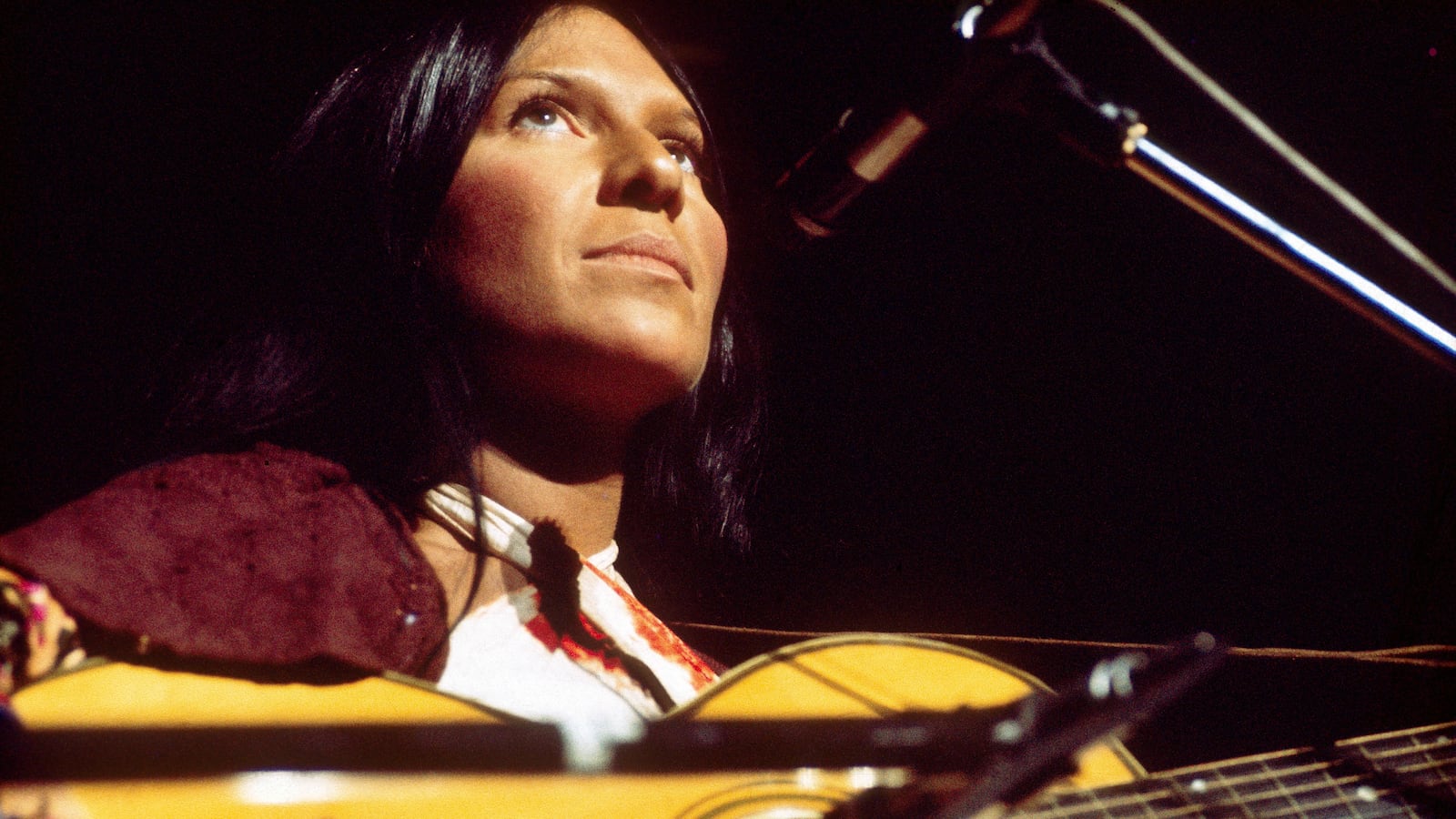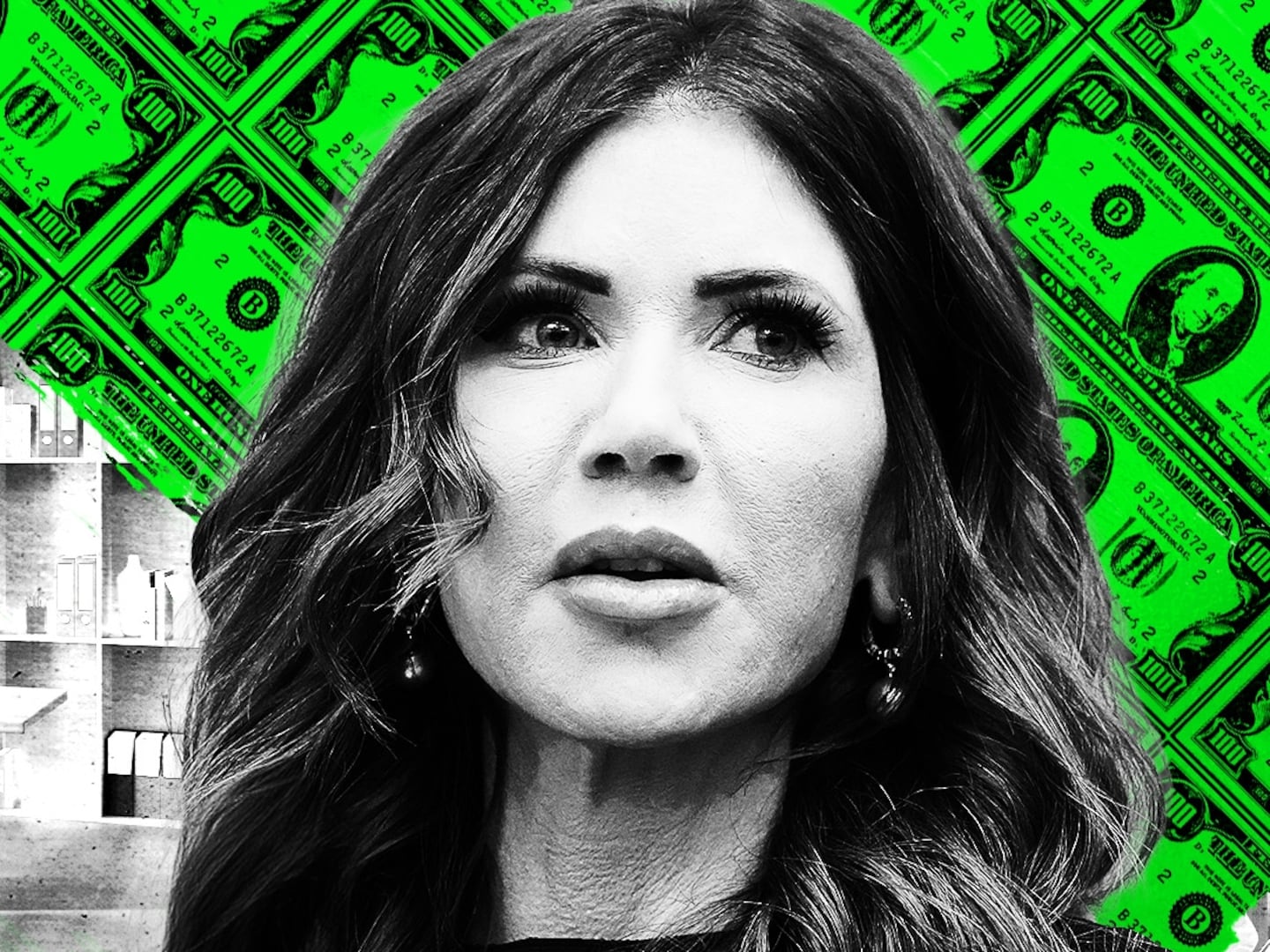A Canadian documentary has unveiled evidence—including official documents and family interviews—that it says suggests singer-songwriter Buffy Sainte-Marie, widely celebrated as an indigenous icon, was born in Massachusetts to a white couple.
And the doc contains another bombshell—an allegation that the Oscar winner accused her older brother of sexual abuse because he told producers for Sesame Street that she was misrepresenting her family history and heritage.
CBC News reports that it obtained a birth certificate for Sainte-Marie that shows she was born in 1941 in Stoneham, Massachusetts, and not in Canada to a Cree woman, as she has claimed. It says she and her parents were white.
Sainte-Marie, 82, has said in the past that the Canadian government removed her from her birthplace to be adopted by Albert and Winifred Santamaria, who then raised her in New England.
But the CBC reports that an insurance policy Winifred Santamaria took out for Buffy—then called Beverly—certifies she was born Stoneham in 1941, and her older brother Alan listed the same in military enrollment papers in 1956.
An 1982 marriage certificate signed by Buffy Saint-Marie, which the CBC obtained from Los Angeles County, says she was born on Feb. 20, 1941, in Massachusetts to Albert and Winifred St. Marie.
“She wasn’t born in Canada… She’s clearly born in the United States,” said niece Heidi St. Marie, the daughter of Alan, who died more than a decade ago. “She’s clearly not Indigenous or Native American.”
“Nobody except for Buffy ever talked about Buffy being adopted,” she added.
And it appears this is not the first time someone is blowing the whistle. The CBC team dug up an article from the Wakefield Daily Item in 1964 in which her paternal uncle pushed back against a Look magazine profile that described Buffy as Indian.
“After reading the story, I thought I should come down and tell you the truth about Buffy,” he was quoted as saying. “She doesn’t sound in this magazine story like the girl who grew up here.” He added that his niece “has no Indian blood in her.”
The CBC also obtained a scathing letter that the singer wrote to her brother, reportedly after he told a PBS producer that his sister was white—drawing a stern rebuke from her lawyers.
“Alan, you no doubt remember your continued sexual abuses to me throughout my childhood,” she wrote. “According to my memories and my childhood diaries, you are nothing but a child molester and a sadist.”
“The guilt of it has induced you to try to hurt me through a children’s show,” she continued. “If you ever try to hurt me again, I will explain the roots of your sickness to your employers and wife, and I will send the police after you.”
She later went public with her claims of being abused, but not until after Alan’s death.
In a pre-emptive strike against the documentary, Sainte-Marie earlier this week released a statement in which she called the allegations “deeply hurtful.”
“What I’ve always been honest about is that I don’t know where I’m from or who my birth parents were, and I will never know,” she wrote. “All I can say is what I know to be true: I know who I love, I know who loves me. And I know who claims me.”
“My Indigenous identity is rooted in a deep connection to a community which has had a profound role in shaping my life and my work. For my entire life, I have championed Indigenous and Native American causes when nobody else would or had the platform to do so,” she added. “I may not know where I was born, but I know who I am.”
Her attorney, Josephine de Whytell, told the CBC last month that “at no point has Buffy Sainte-Marie personally misrepresented her ancestry or any details about her personal history to the public.”
De Whytell also downplayed the significance of the birth certificate, writing, “Research has also revealed that children adopted by parents in Massachusetts were commonly issued new Massachusetts birth certificates with the name of their adoptive parents.”
But the CBC said Stoneham numbered birth certificates chronologically, and Sainte-Marie’s number indicates it was filed in 1941.





